Niger in jaws of US, France: War drums get louder as standoff continues
By Kimani Kahumbu
As the political crisis in Niger enters its fourth week, both opposing sides are refusing to budge from their respective positions, setting the ground for potential civil war and external military intervention.
The crisis erupted following a military coup at the end of July, when the country's presidential guard removed and detained President Mohamed Bazoum, and guard commander General Abdourahamane Tchiani declared himself the leader of the new ruling junta.
The political upheaval is the latest in the region that has seen a string of successful military coups in neighboring Mali, Guinea and Burkina Faso, along with several unsuccessful ones in other countries.
What they all have in common is that they were directed against the corrupt ruling establishments and against the destructive policies of France, their former colonizer, as well as the US.
Once part of colonial French West Africa, Niger gained independence in 1960 after a long-running struggle, but the demarcation of borders and a flag made it no more economically independent than before.
Its monetary policy continued to be closely linked to France and the West African bloc, where the Franc is used widely, as in the seven West African countries that were previously colonies of Paris.
France is still Niger's largest trading partner, accounting for about a third of imports and exports. Niger's most important export product is uranium, which meets a fifth of France's total needs.
The French company Orano Cycle enjoys a monopoly over the uranium industry in the African country, and it is estimated that Niger receives only about 10 and 15 percent of the profits, most of which again ends up in French banks in French currency.
In the 21st century, Niger was the same as Albania, Kosovo and Ukraine in Europe, Haiti in North America, Afghanistan in Asia, and Kiribati in Oceania - the poorest country on the African continent, at the same time also a faithful partner of the USA and France.
The Human Development Index (HDI) rate in Niger has been the lowest in the world for years – only every sixth inhabitant lives in a city, less than a fifth have access to electricity, and only a third of the population is literate, including a quarter of women, which points to poor standards of life despite massive natural resources.
From French and American politicians as well as their media outlets, however, it is difficult to hear statements of concern about the situation in Niger, especially the grim economic situation.
In a neo-colonial possession like Niger, this is evidently normal for Washington and Paris, a kind of unquestioned state of nature. For them, it is controversial only when Nigeriens try to change the corrupt government, unequal contracts and difficult national situation.
The coup and change of the political status quo are strongly opposed by France and the United States because both have interests in existing political-economic agreements, as well as in keeping thousands of soldiers in military bases throughout Niger.
As of November 2019, the Americans operate Air Base 201, where about 1,100 soldiers are stationed and which is used for MQ-9 Reapers and manned aircraft. France maintains 1,500 soldiers at its base.
After the successful coup, the new authorities banned American drones from flying in Niger's airspace and asked the French troops to leave the country until September, which Paris refused.
The official reason for the presence of the two Western powers is the alleged fight against extremist rebels, although many analysts argue that the main motive is to control the African country’s massive energy resources as well as use them for the strategic surveillance of West Africa.
Washington first sent Victoria Nuland, notorious for her inciting role in the Iraq War and the Ukrainian War, to Niger to convince the new government to back off their demands and not allow the presence of the Russian private militia force, Wanger.
Later, US Secretary of State Antony Blinken threatened the Niger junta for the unacceptable conditions of the country's ousted Western-backed president and called for the restoration of the “constitutional order,” in other words the pre-coup state of affairs with the US and France dictating terms.
Paris called for the same, ignoring all the demands of the Niger junta, evacuating EU civilians and threatening Niger with military intervention.
Practical foreign pressures on Niger began with the introduction of a series of sanctions on commercial and financial transactions, the freezing of assets abroad and the blocking of electricity supplies from neighboring countries, thus worsening the already poor humanitarian situation in the country.
A key ally of France and the US in a potential conflict is the Economic Community of West African States (ECOWAS), a regional bloc dominated by Nigeria that has experience with military interventions against “unfriendly” governments and political movements
On the other hand, political and military assistance to Niger is provided by Burkina Faso, Mali and Guinea, also states with coup governments, all recently suspended from ECOWAS.
Despite foreign threats and the ECOWAS ultimatum that expired on August 7, the junta did not deviate from its demands and the three-year transition period for the transfer of military to civilian power.
The success of a possible ECOWAS operation is questionable because earlier interventions were limited to joining one conflicting side or against a handful of coup plotters.
This time, however, they would have tens of thousands of soldiers and volunteers against them.
For similar reasons, in the last two years, ECOWAS has not intervened in Mali, Burkina Faso and Guinea, which today are willing to provide Niger with direct military support.
French and American pressure on ECOWAS to intervene has only fueled the discontent of the population in Niger, who are aware that foreigners are pushing them toward death and despondency.
Earlier this week, Nigeria's prominent Islamic scholar Sheikh Ibrahim al-Zakzaky publicly warned that the US and France intend to stoke sedition in African countries.
The conflict is strongly opposed by North African countries such as Algeria, who know the war would be large-scale and long-lasting, and that it would pave the way for millions of new refugees.
Washington and Paris, although in principle advocating a peaceful solution, are preparing for all available options, including the military, just to secure their interests, regardless of the consequences.
In the eyes of neo-colonial powers, concessions to Niger would open the door for numerous other African and other countries to demand similar more equal contracts and relations.
In light of the recent commemoration of the 70th anniversary of the Western-backed coup in Iran, it can be said that today's West Africa is going through what Iran did when it tried to negotiate fairer agreements in the 1950s, thinking that the Western powers would treat it as an equal partner.
Kimani Kahumbu is a Kenya-based writer and political commentator on African affairs.
(The views expressed in this article do not necessarily reflect those of Press TV.
Blair distances himself from Trump’s $1bn ‘Board of Peace’ fee
US Justice Department refuses probe into killing of Minneapolis mother
VIDEO | Israel Gaza ceasefire violations
VIDEO | Gaza Solidarity Forum in Damascus calls for boycott of Israel over Gaza genocide
VIDEO | London memorial event highlights Gaza genocide
VIDEO | Press TV's news headlines
VIDEO | Istanbul demonstrators voice support for Iran amid US tensions
VIDEO | Israeli settlers attack Palestinian Bedouin community, injure 13


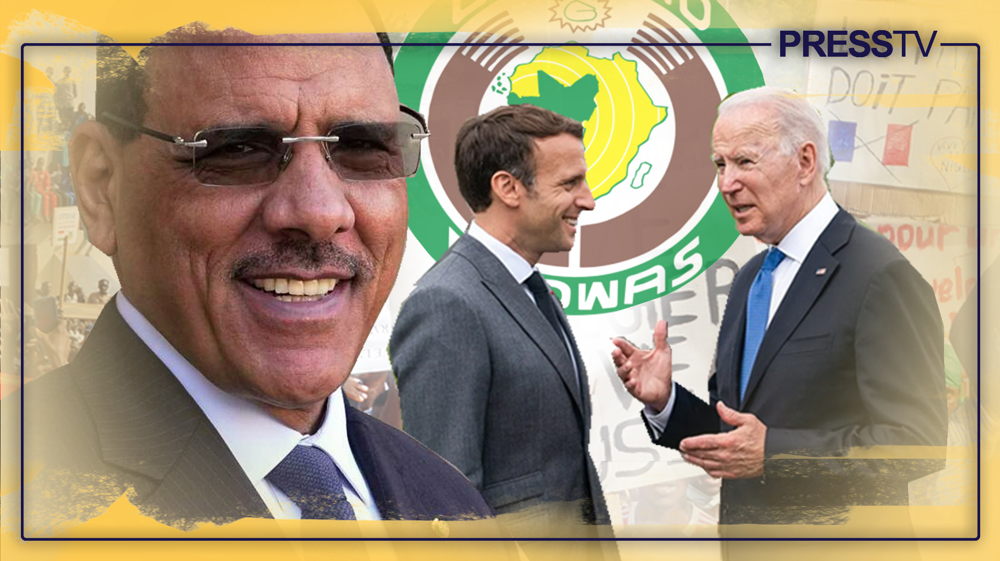
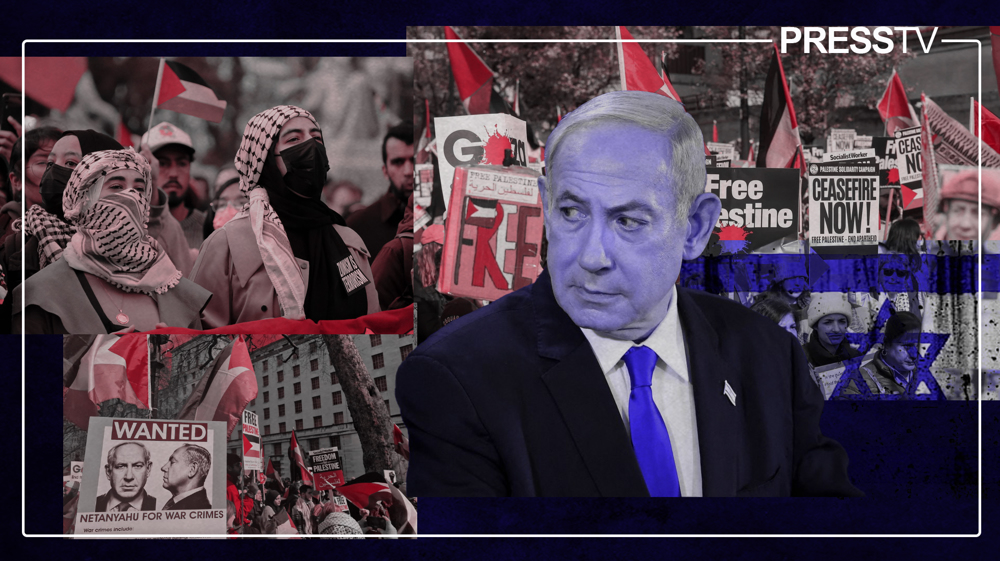

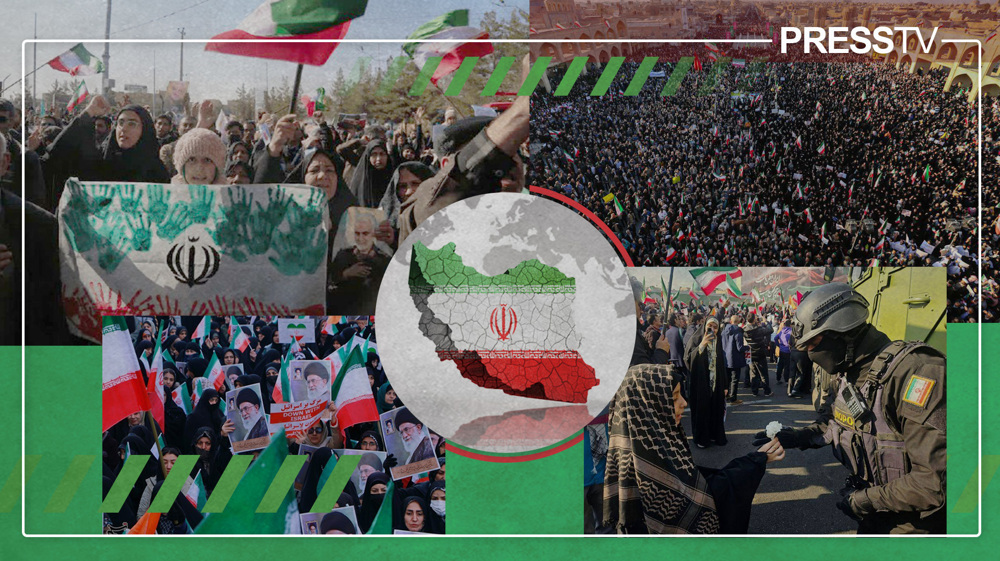



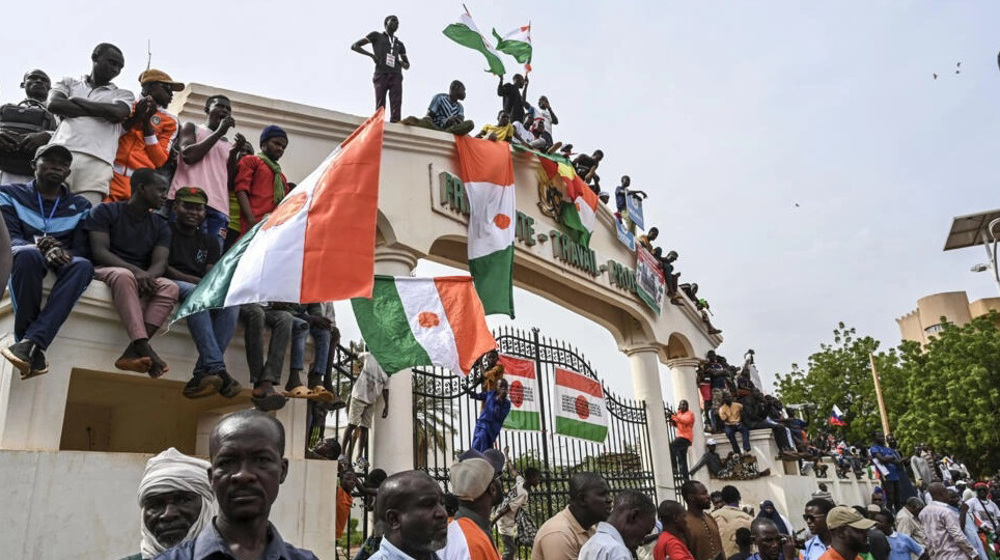
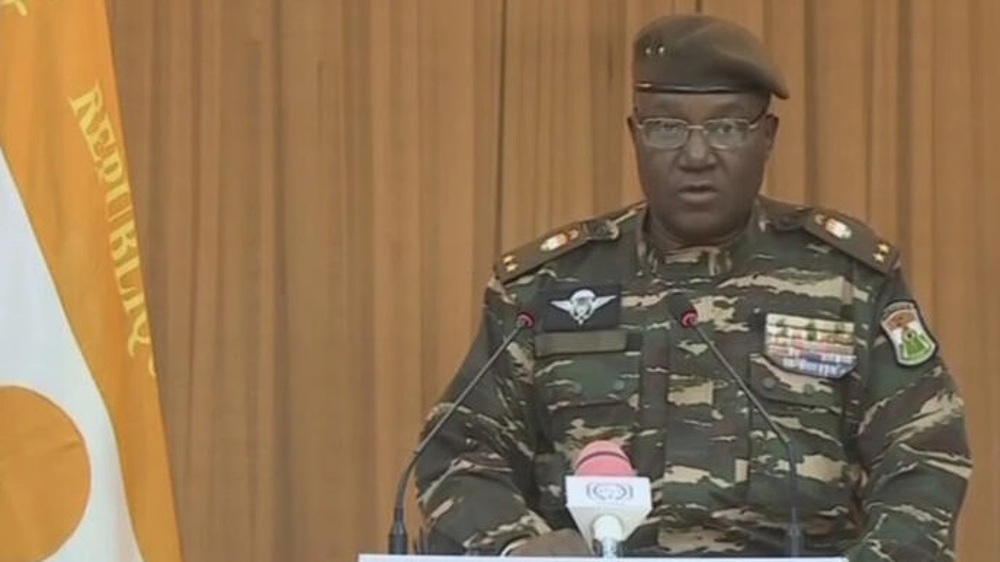
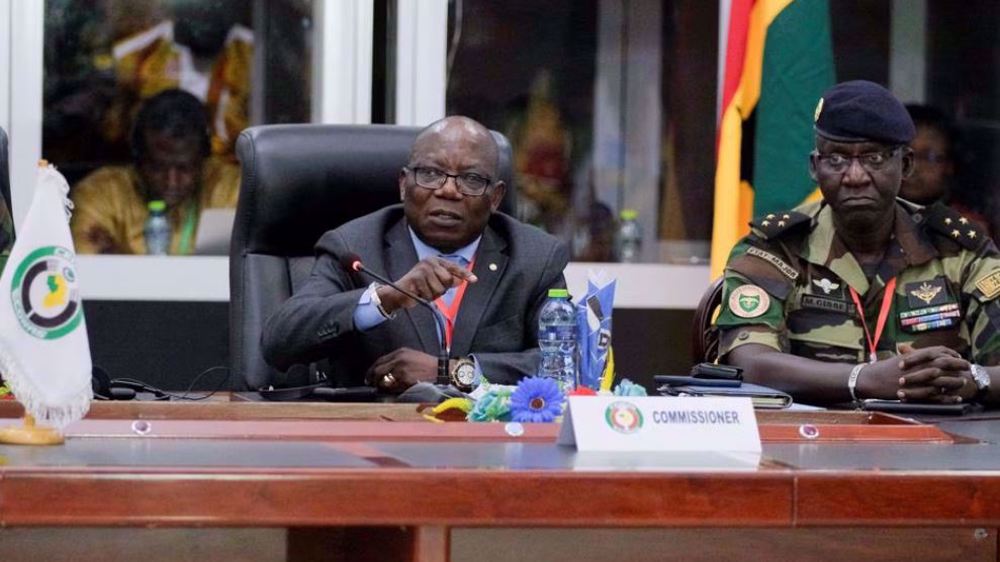
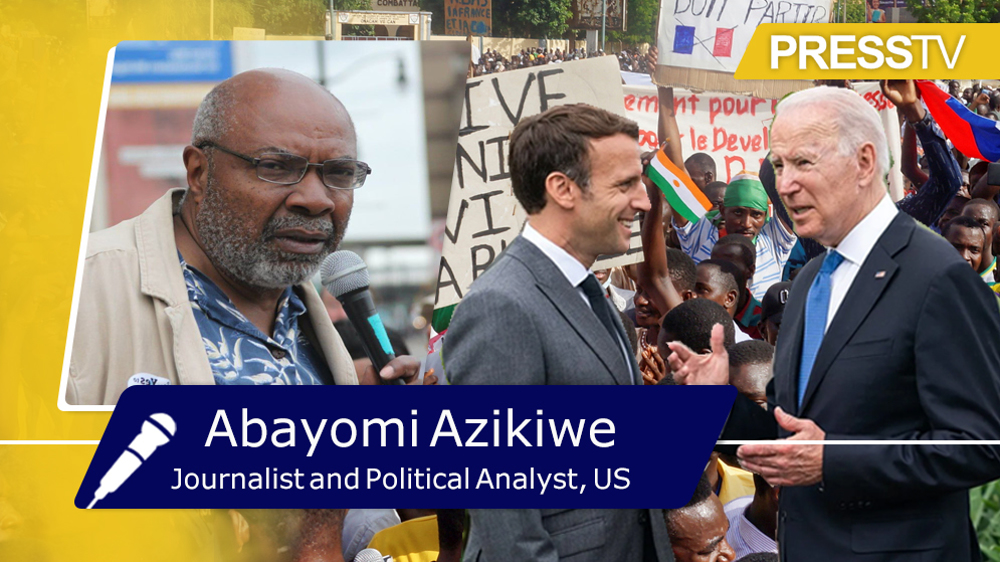
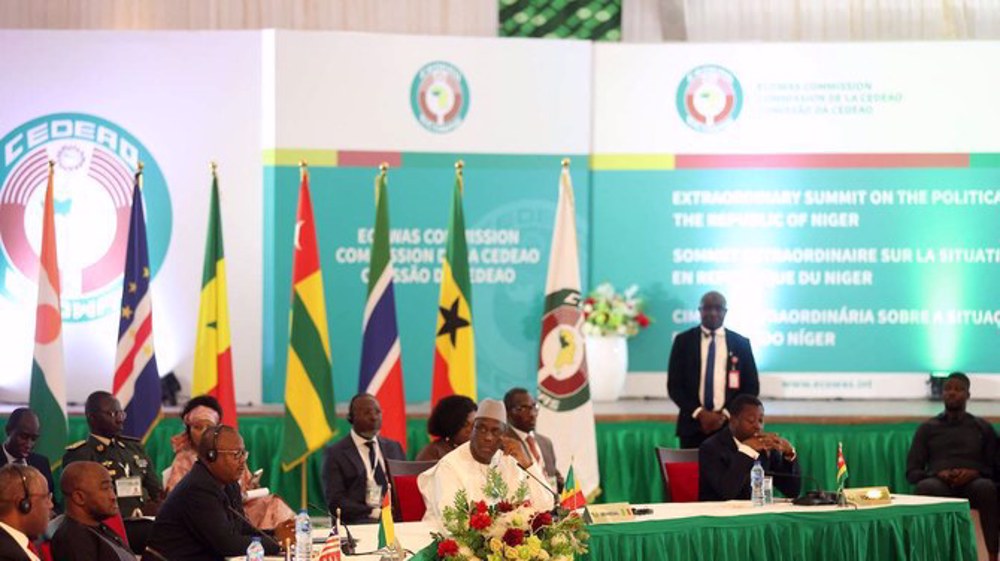

 This makes it easy to access the Press TV website
This makes it easy to access the Press TV website